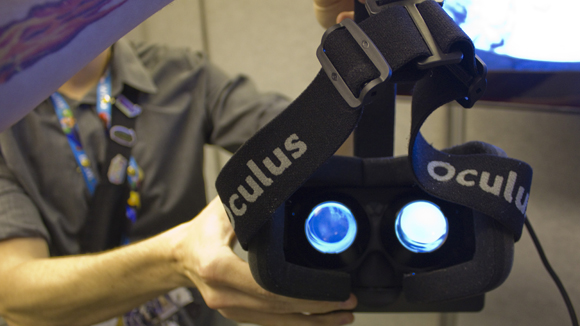Oculus issues final word on VR code theft allegations
Case closed on this Rift?

Oculus VR is no stranger to the spotlight, but its most recent bout of publicity wasn't the type it's used to, as a game publisher accused it of stealing tech incorporated in the Oculus Rift headset.
Zenimax said that its former employee, John Carmack, creator of the classic game Doom and now employed at Oculus as chief technology officer, took some code with him when he left - code that Oculus is not authorized to use.
Oculus has finally issued a public response to the allegations, and a representative told TechRadar that "this is the only response" they're going to make at this time.
"We are disappointed but not surprised by Zenimax's actions and we will prove that all of its claims are false," the Oculus representative said. "In the meantime, we would like to clarify a few key points."
With great power…
For one thing, Zenimax claimed that Oculus founder Palmer Luckey broke an NDA, but Oculus says, "Zenimax has misstated the purposes and language of the Zenimax non-disclosure agreement that Palmer Luckey signed."
The rest of Oculus' statement is comprised of a series of bullet points claiming that "there is not a line of Zenimax code or any of its technology in any Oculus products" and "John Carmack did not take any intellectual property from Zenimax."
"A key reason that John permanently left Zenimax in August of 2013 was that Zenimax prevented John from working on VR, and stopped investing in VR games across the company," statement continues.
Sign up for breaking news, reviews, opinion, top tech deals, and more.
The bulleted notes also address the reason why Doom 3 BFG, a game that was supposed to come packed with every Oculus Rift headset, won't be released with any VR support at all.
"Zenimax canceled VR support for Doom 3 BFG when Oculus refused Zenimax's demands for a non-dilutable equity stake in Oculus," the statement says. Now that's revelatory.
…comes serious allegations
"Zenimax did not pursue claims against Oculus for IP or technology, Zenimax has never contributed any IP or technology to Oculus, and only after the Facebook deal was announced has Zenimax now made these claims through its lawyers," the statement continues. Facebook purchased Oculus for $2 billion (about £1.1b, AU$2.1b) in March.
It concludes by pointing out that Oculus' full source code is available online at developer.oculusvr.com, and that "Zenimax has never identified any 'stolen' code or technology."
Now the ball's in Zenimax's court, and the tech world waits eagerly to find out just how far they'll take this.
Michael Rougeau is a former freelance news writer for TechRadar. Studying at Goldsmiths, University of London, and Northeastern University, Michael has bylines at Kotaku, 1UP, G4, Complex Magazine, Digital Trends, GamesRadar, GameSpot, IFC, Animal New York, @Gamer, Inside the Magic, Comic Book Resources, Zap2It, TabTimes, GameZone, Cheat Code Central, Gameshark, Gameranx, The Industry, Debonair Mag, Kombo, and others.
Micheal also spent time as the Games Editor for Playboy.com, and was the managing editor at GameSpot before becoming an Animal Care Manager for Wags and Walks.
